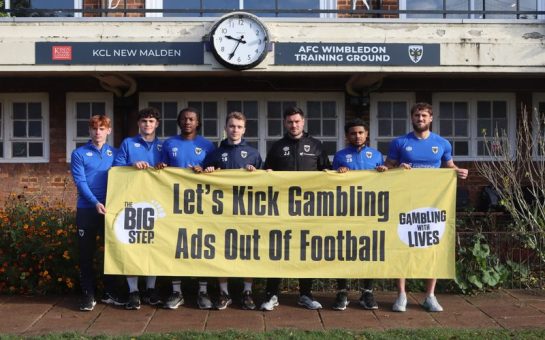Gamblers in London could be asked to show their payslips to gambling regulators to prove they can afford to bet under new government proposals.
The UK Gambling Commission would like to see punters who bet and lose more than £100 a month go through ‘affordability checks’ and be placed on a ‘gambling register’ so that their outgoings can be better tracked.
Chris Philp, who took over as a gambling minister in September, had outlined a series of government proposals after a landmark review of the sector.
He indicated that a tougher regulatory environment could help to reduce industry revenues, citing it as a moral obligation to tackle gambling addictions.
Too many stories of people losing unaffordable amounts of money
Speaking at the annual conference of GambleAware, the charity that administers funding for programmes to reduce gambling addiction, Mr Philp said: “I have heard too many stories of people who lost obviously unaffordable amounts of money without proper checks being made by the gambling operators who had the data available.
“I have also heard about direct marketing, offers and VIP treatment being targeted at people with manifest gambling problems.
“This is not how gambling should operate, and we must take decisive measures to change it.”
Philp said a white paper that outlined government proposals, which is due to be published early next year, could include the ‘affordability checks,’ which would stop operators intervening only when a customer had lost large sums, and it was “far too late”.
Philp continued: “Demanding payslips or bank statements from every customer spending £100 is probably going to be unwelcome, disruptive and disproportionate.
“But there is a level at which that is appropriate.”
Anger from punters about the measures
The measures have not been welcomed by everyone and have drawn criticism, with some punters furious about the possible intrusion.
In the future, if you wanted to bet on AFC Wimbledon to win at the weekend or a victory for ambitious Sutton United, you could be forced to prove you can afford to do so.
One recreational gambler said: “Anyone who spends anything will get logged and end up on a register.
“If you lost more than £100, you’d have to share bank statements, so they can decide if you can afford to do it.
“What next? A register of alcohol spending to stop people from binge drinking? A shopping register to stop people overspending and getting into debt?”
Responsible gambling has become a hot topic in recent years, and people are encouraged to use licensed sites like STS Bet when they wish to place wagers at an online casino or bookie.
Mr Philp also indicated that the Gambling Commission would receive more funding to improve its regulatory capacity, which could include greater powers to ‘requisition’ and analyse data in bulk from gambling companies to ensure they were not exploiting vulnerable people.
His proposals have had the backing of Andrew Rhodes, the head of the UK Gambling Commission, who said gaming and betting companies were still failing in their duty to protect problem gamblers and that “too many operators are not complying with our rules.”
Zoe Osmond, chief executive of GambleAware, also welcomed the proposals.
She said: “We welcome the minister’s announcement that the government is working with the Gambling Commission to take steps to better protect people at risk of gambling harms through affordability checks, a single customer view, and a data repository to inform intervention and uphold industry standards.”
No immediate plans to introduce a gamblers database
However, a government insider has confirmed to The Sun that there are no immediate plans to create a database of every bet placed by punters.
They also said the proposals could create a legal nightmare as they are thought to be in breach of data laws.
But Gaming minister, John Whittingdale, hinted at the measures last month during a debate in the House of Commons.
He said during the session: “We are looking at whether further controls for play online would be effective in preventing gambling harm, including whether greater controls are needed at an account or product level.
“We are also working closely with the UK Gambling Commission on its parallel work to improve how operators interact with customers, and we will ensure that any new checks that they introduce to increase protections for those who are financially vulnerable, binge gambling or losing significant amounts over time harmonise with the aims of our own review.”



